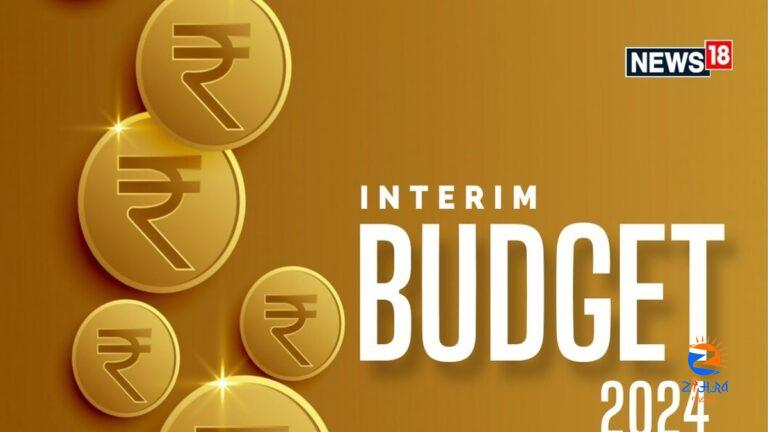
[ad_1]

Interim Budget 2024. (Representative image)
Finance Minister Nirmala Sitharaman did not need to do anything populist in nature, given that elections are around the corner
As Finance Minister Nirmala Sitharaman presented her sixth budget on February 1, a statement that left a lasting impact was that she suggested no tax-related amendments to direct or indirect tax. It reflects a deep belief within the government that their reforms are on the right path, and they did not need to do anything populist in nature, given that elections are around the corner. The Budget reflected how the government has been looking at the country’s growth over the last 10 years by continually focusing on the long term. Eight points stood out from a financial services standpoint, given the long-term impact they have on the economic growth of any country.
Fiscal consolidation: The sovereign rating of any nation depends on its ability to keep its fiscal deficits within a defined range, as committed by the government. The long-term fiscal deficit range proposed to be made is 4.5 per cent of the GDP. The decision to keep it at 5.1 per cent of GDP for FY25 from the previous year’s number of 5.8 per cent reflects the government’s commitment, which is a big credit positive for the country and will go a long way in contributing to sustainable growth. This aligns with the government’s aim to achieve a fiscal deficit target of below 4.5 per cent by 2025-26. Further, the government has set a divestment target of Rs 50,000 crore for FY25, showing its commitment to fiscal consolidation and sustainable growth.
Continued focus on enhancing the strength and resilience of the financial services ecosystem: The growth of any real economy is dependent on the robustness of the financial services ecosystem that supports the real economy. The government has recognised this and reinforced its commitment towards enhancing the financial services ecosystem’s size, scale, capacity, and regulatory framework. This commitment is evident in the recent budget announcement where the government has assisted 25 crore people in escaping from multidimensional poverty. The direct benefit of Rs 34 lakh crore via Jan Dhan has led to savings for the government, further strengthening the financial services ecosystem.
Human Capital: Initiatives around education, skilling, employment, health care, gender focus through women empowerment, sports, and financial inclusion announced in the budget reflect a focus toward building human capital – one of the most essential components to power the GDP of any nation. The return on investment (ROI) on such initiatives is very long-term and often misunderstood. Still, the government’s commitment to ignore that and keep a razor-sharp focus on reforms is commendable. Human capital initiatives contribute significantly to long-term sustainable growth and are often viewed as credit-positive from a sovereign rating perspective. Initiatives like Skill India Mission, which has trained 1.4 crore youth and upskilled and reskilled 54 lakh youths, showcase the government’s commitment to developing youths who are our country’s human capital.
Entrepreneurship focus: The government recognises the growth that an entrepreneurial mindset brings to the economy through innovations and inventions. Schemes like the Pradhan Mantri MUDRA Yojana has helped in promoting entrepreneurial aspirations by sanctioning loans worth INR 22.5 lakh crore. Similarly, women entrepreneurs have benefited from the 30 crore Mudra Yojana loans sanctioned to them under the MUDRA loans for women scheme. Announcements towards building a robust start ecosystem in India reflect this commitment to continue the path of innovation.
A global focus on rupee internationalisation: The Budget made a fleeting remark on the importance of the IFSC ecosystem and how it will serve as a gateway to global capital. This announcement will provide a great impetus for the IFSCA regulator to continue its liberalisation journey and ensure that India plays a larger role in the global financial system.
Commitment to the continued independence of the regulators in India: The fact that the Finance Minister recognised the efforts of the RBI as an institution tasked with the responsibility of managing inflation reflects commitment toward maintaining the institutional independence of the banking regulator – a powerful credibility indicator from a foreign investor standpoint.
Focus on strengthening soft power through its widespread Indian diaspora across the globe: India recognises the importance of soft power that it can exert through its Indian diaspora spread worldwide. The initiatives around promoting spiritual tourism and domestic tourism reflect its commitment to diplomatic supremacy – an important tool in today’s multi-polar world, where regionalisation trumps globalisation. This will significantly contribute to increased Foreign Direct Investment (FDI) in the country as well, given that many Indians sit at different prominent positions across the world today – well reflected from the 2x growth seen in FDI Inflow between 2014-2023 of INR 43.71 lakh crores (USD 596 billion) vis-à-vis 2005-2014.
Digital Public Infrastructure (DPI) – a new factor of production: Digital India has been the goal of the government and Digital Public Infrastructure (DPI) has played a significant role to get there. Acknowledging the same as a new factor of production in the speech reflects the government’s continued commitment to the theme. This will provide an impetus to the regulators who are experimenting with various initiatives, such as public cloud infrastructure for the financial institutions (this is an initiative of the RBI).
This interim budget 2024 is a continuum to the previous budgets reflecting patient reforms that have been carried out over a period contributing to the outcome as to why India is one of the brightest spots in an otherwise somber world today.
(Vivek Iyer is partner and finTech industry leader at Grant Thornton Bharat. Ramanujam Krishnan, manager at Grant Thornton Bharat, and Aakriti Malik, assistant manager at the company, also contributed to the article)
[ad_2]